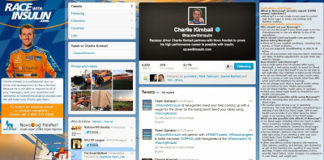
Lately, we’ve been witnessing a regression of sorts in the quality of DTC (Direct-to-Consumer) Rx drug ads. The recent “Viva Viagra” ad, for example, is a throwback to the days before Congress was serious about banning DTC or imposing more restrictions on DTC (see “Viva Viagra Ad is No Cure for Morte Sales“).
The Viva Viagra campaign also reneges on Pfizer’s pledge back in 2005 to focus more on disease awareness in its DTC advertising. At the time, I said that erectile dysfunction (ED) ads would be the litmus test for this change in policy (see “Pfizer DTC Pledge: ED is Litmus Test“). Well, it seems that Pfizer has failed the test.
Viva DTC Old-school Style!
It should be noted, however, that in the Pfizer press release about its pledge (which no longer can be found on Pfizer’s site), the phrase “in 2006” was used to qualify the terms of the pledge. I guess now that we are well into 2007 and Congress has removed any mention of mandatory DTC moratoriums in the PDUFA legislation, there’s no longer a need to look good in public. So party on, you DTC marketing animals!
“Unfortunately,” says Richard Meyer of World of DTC Marketing, “Viva Viagra is another reason that real good DTC is on life support and maybe DOA.”
Not only do these ads fail to live up to promises of educating the public about medical conditions, they also STINK! At least in terms of delivering return on marketing investment. Rozerem is definitely spending more on marketing than it is getting in return (see “Rozerem Ad Spending Exceeds Sales!“). The same fate may await Viagra — it’s difficult to imagine the ad enticing more men to talk about erectile dysfunction with their physicians, which is Pfizer’s stated goal for the ad.
“I worked with the DTC team on the launch of Cialis and learned first hand the barriers that many face to seeking treatment for this condition that effects couples. These barriers cannot be overcome with a jingle of images of couples in bathtubs.” — Richard Meyer.
Why Do DTC Ads Stink?
Why do these ads stink at delivering ROI although they are highly memorable and score highly in typical focus groups?
Lee Weinblatt, CEO of The PreTesting Company, which tests the ads and commercials of over 300 of the world’s largest companies, thinks he knows why. The typical methodology for measuring DTC effectiveness, claims Weinblatt, “is leading pharmaceutical DTC advertisers down the wrong path.”
What, then, is the right path?
Podcast Today at 1 PM!
Tune in today to a live podcast interview of Weinblatt in which he will answer that and the following questions:
- What major problems have you seen with DTC ads? Are drug ads too much like package goods ads?
- What about the agencies that drug companies use to create their ads? Are they up to the task? If not, why not?
- Why are recall and likability of ads meaningless?
- What should be the measure of ROI for DTC campaigns? Does increase in market share figure into that calculation?
- What does the Pharma marketing executive need to know about how ad performance? How does Pretesting deliver on that? How do Pretesting Company’s techniques differ from other company’s techniques?
- Live Podcast Date: Wednesday, July 25, 2007, 1 PM Eastern US time
- Duration: Approx. 35 minutes
- Go to the Pharma Marketing Talk Channel Page to listen LIVE at the designated time or afterward to listen to the audio archive on the Web with your browser. After the live podcast you can also click on a button below to listen to the streaming audio archive on your computer or to download the show for playback on your iPod or other portal audio player.










![6 Digital Tools at the Center of Healthcare Digitalization [INFOGRAPHIC]](http://ec2-54-175-84-28.compute-1.amazonaws.com/pharma-mkting.com/wp-content/uploads/2021/04/6DigitalTools_600px-100x70.jpg)




